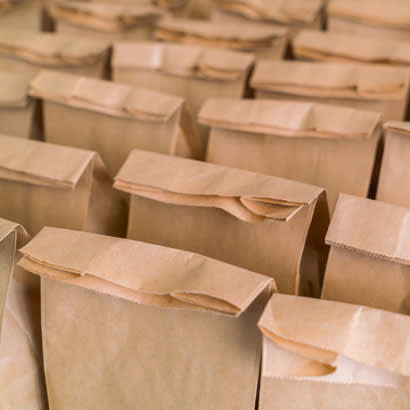
With near-daily updates and changes regarding the Coronavirus Disease 2019 (COVID-19) pandemic, it can be confusing to keep track of the most up-to-date news regarding guidance for offering child nutrition programs. As park and recreation professionals continue to play a huge role in providing healthy meals to children in communities across the country, we encourage you to review the latest information to ensure you have what you need to continue to support community-wide health.
We also encourage you to share your story of how your agency is stepping in to help seamlessly serve meals. The inspiring ways agencies are working with meal sponsors to serve as meal pickup locations, offer mobile deliveries or identifying staff to make personal home deliveries is a powerful tribute to the power of parks and recreation.
Nationwide Meal Waivers
The Families First Coronavirus Response Act gives the U.S. Department of Agriculture (USDA) the authority to issue nationwide waivers to ensure access to meals through the child nutrition programs as communities respond to the COVID-19 pandemic and to issue waivers to increase cost. Waivers have been issued to support non-congregate feeding, meal service times and activity requirements for afterschool nutrition programs. More information on waivers can be found here. Information on a waiver issued to allow parents and guardians to pick up meals at sites without the child being present can be found here. Information on a waiver issued to waive requirements of nutrition standards in meals being served through the National School Lunch Program, School Breakfast Program, Child and Adult Care Food Program, and Summer Food Service Program can be found here.
Meal Sponsorship
In light of the many closures across the country, park and recreation agencies may be worried about accessing meals previously secured by sponsors — oftentimes schools. If closures have impacted how your agency receives meals, consider reaching out to your state anti-hunger organization to request information or assistance in continuing to provide meals to your community. More information on state anti-hunger organizations can be found here.
Meal Delivery
Meal delivery options through the Summer Food Service Program (SFSP) do exist for sponsors operating in area-eligible locations that have received state agency approval. This option is key for supporting families who face challenges to accessing meal pickup locations, including lack of transportation. More information on meal delivery logistics can be found here.
SNAP Benefits
Under the Families First Coronavirus Response Act, state Supplemental Nutrition Assistance Program (SNAP) agencies and child nutrition agencies are eligible to provide Pandemic Electronic Benefit Transfer funds (P-EBT) to SNAP and non-SNAP households with children who have temporarily lost access to free or reduced-price school meals due to pandemic-related school closures. State agencies must submit a plan for implementing P-EBT. If your agency works to connect community members to SNAP benefits check with your state agency to advocate for the submission of waivers and determine the status of additional P-EBT benefits. More information on P-EBT can be found here.
Additional Resources to Support Community Nutrition
- No Kid Hungry is activating a texting hotline (text FOOD/COMIDA to 877-877) to provide information about emergency food distribution sites in communities where schools have been closed due to the COVID-19 pandemic. No Kid Hungry is asking for data from state agencies, school districts and food banks about when and where emergency food distribution sites are in operation. Program sponsors and administrators can submit site data to add their information.
- Coronavirus response emergency grants are available to support local school districts and nonprofit organizations in their efforts to ensure kids receive the nutritious food they need. School districts and community organizations are eligible to submit an initial grants inquiry. Inquiries are currently accepted on an ongoing basis; No Kid Hungry will follow up with eligible organizations.
- Food banks are mobilizing across the country, providing emergency food and non-food items, as well as household items like cleaning supplies, diapers and personal care products. Many are implementing social distancing by creating drive-through and outdoor distribution centers. Find your local food bank to learn more about the response in your community.
The creative and supportive examples of how park and recreation professionals are working to provide meals continue to inspire us. For example, Baltimore City Recreation and Parks is offering grab-and-go breakfasts and lunches for all kids and teens under age 18 from 12 p.m. – 6 p.m. at 42 recreation centers citywide. They have provided a meal location guide, and a mobile meal program is also delivering meals to specific addresses and other community locations. In Ozark, Alabama, Ozark Parks & Recreation staff are working with the local school district to pack and provide lunches through SFSP. More stories of innovative and inspiring park and recreation agencies can be found in the blog “Park and Recreation Agencies Step Up to Provide Meals During COVID-19 Pandemic.”
To find the latest information on updates to child nutrition programs, check out the most recent blog post: Clarifications Issued on Child Nutrition Programs.
For more information about NRPA’s response to COVID-19, as well as available resources for park and recreation professionals, please see our Coronavirus Disease 2019 (COVID-19) webpage.
Maureen Acquino is a Program Manager at NRPA.


